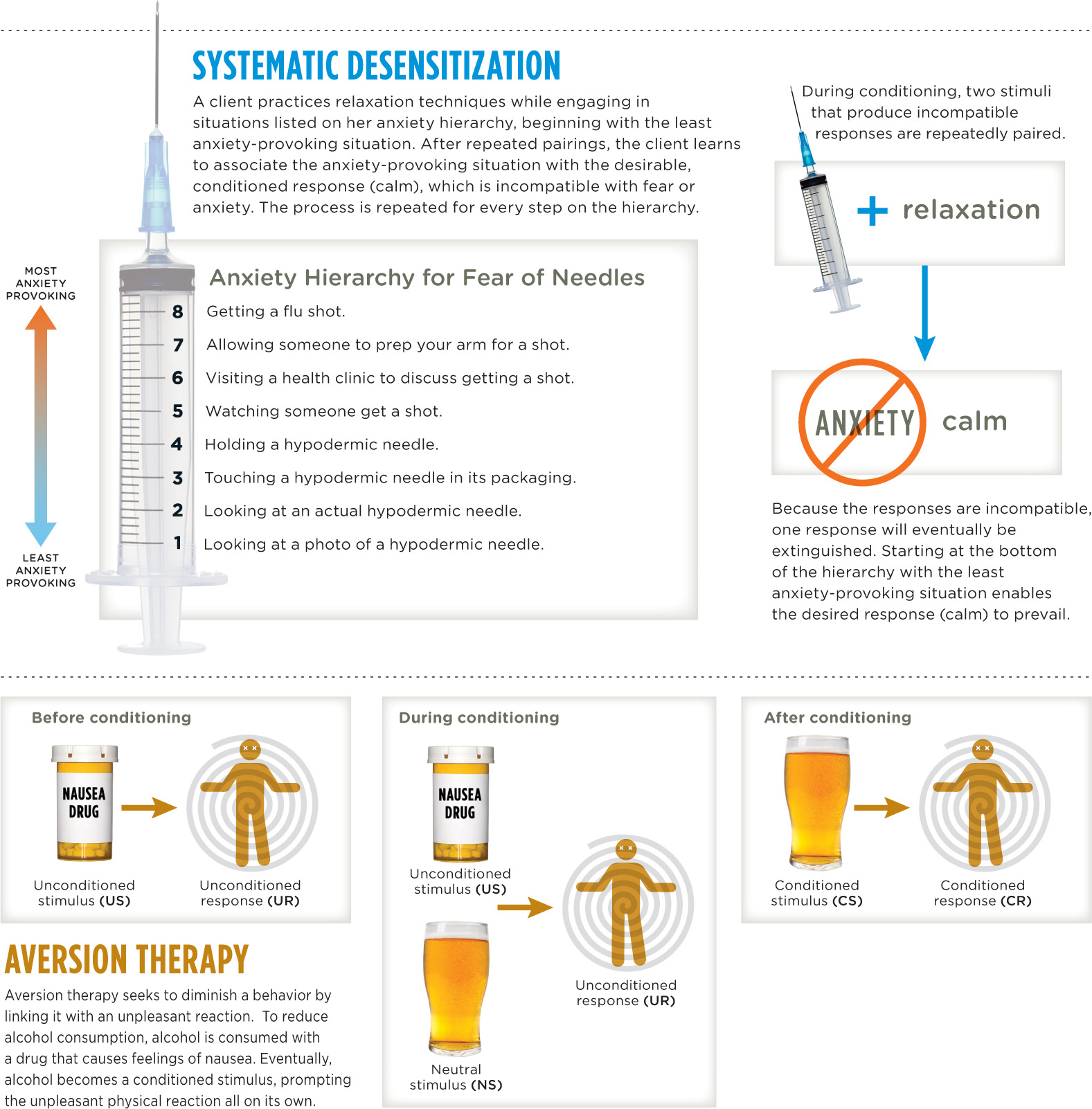INFOGRAPHIC 14.2: Classical Conditioning in Behavior Therapies
Behavior therapists believe that most behaviors—either desirable or undesirable—are learned. When a behavior is maladaptive, a new, more adaptive behavior can be learned to replace it. Behavior therapists use learning principles to help clients eliminate unwanted behaviors. The two behavior therapies highlighted here rely upon classical conditioning techniques. In exposure therapy, a therapist might use an approach known as systematic desensitization to reduce an unwanted response, such as a fear of needles, by pairing it with relaxation. In aversion therapy, an unwanted behavior such as excessive drinking is paired with unpleasant reactions, creating an association that prompts avoidance of that behavior.

Credits: Pill bottle, Joe Belanger/Shutterstock; Pint of beer, Emin Ozkan/Shutterstock; Syringe, istockphoto/thinkstock
[Leave] [Close]